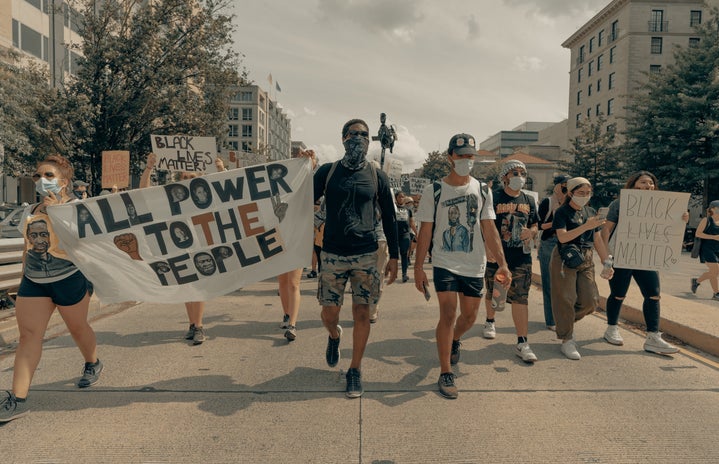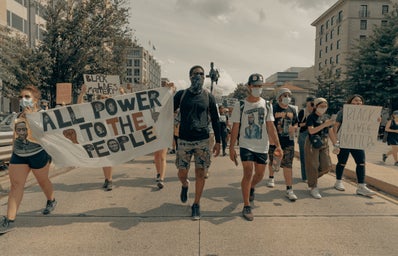Massive violations of Scotland’s democracy were made when Westminster blocked Scotland’s
Gender Reform bill. In light of this, I thought it might be interesting to talk about Scotland’s
independence through time. I would say that this is a historical piece, but I’m gonna warn you, it’s
pretty political.
The Kingdom of Scotland was officially established in 843 A.D., but Scottish inhabitants were fighting
off colonisers long before then. We defeated the Romans, who stopped trying to invade us in 212
A.D. They actually built a wall to protect themselves against us – I reckon Emperor Hadrian was
Donald Trump’s idol. The Vikings were next, who were more successful, but in the mid-ninth
century, Kenneth MacAlpin, a Scottish clan leader, united the mainland to become the first ruler of
the Kingdom of Scotland, and ensured Viking settlements were isolated to the islands.
During the medieval period, England, under the rule of Edward I Longshanks, also known as Hammer
of Scots (what a great nickname), declared war on its neighbours. In the 13 th century, England finally
conquered Wales, and began to invade Scotland in the first War of Independence. However,
Scotland banded together under William Wallace (aka Mel Gibson), a knight who won victory over
England at Stirling Bridge in 1297. However, he was captured by Edward I in 1305, where he was
hung, drawn and quartered for treason. This war ended in 1328 with Robert the Bruce signing the
Treaty of Edinburgh-Northampton, demanding that Scotland pay reparations to England, in return
for England recognising him as the rightful King of an independent Scotland.
Unfortunately, King Edward III of England overturned this treaty soon after it was established,
starting the second War of Independence. A truce was agreed in 1357 due to England focussing their
attention on war with France instead. Scotland was quite back-stabby during this time, providing aid
to the French in revenge against England.
The two kingdoms continued to co-exist as independent countries until the start of the 16 th century.
This was the beginning of the English Reformation, where Henry VIII began to challenge the Catholic
Church and the pope’s authority (or just protesting the enormous tax he had to pay). However,
Scotland remained loyal to the Catholic Church for much longer than England, reigniting original
tensions between the two countries.
Long story short, this religious war resulted in Mary Queen of Scots losing her head, although there
was enough drama in that saga to fill a whole other article. When Elizabeth I of England died a
childless lesbian (mere speculation but go women and LGBTQ+ rights!) in 1603, the only heir was her
cousin, James VI of Scotland, and son of Mary Queen of Scots. Thus, James became James I of
England, Wales and Scotland. Ironically, this means that Scotland successfully colonised England
first.
However, civil war and rebellion ran rampant in all three kingdoms. James’ son, Charles I had some
mild tyrannical tendencies that eventually cost him the crown (and his head), with the Protestant
Oliver Cromwell abolishing the monarchy and instating himself as Lord Protectorate of Britain. The
Scots, still more Catholic than England, opposed this Protestant rule and supported Charles’ I son,
Charles II, in his bid to bring back the monarchy (and partying). He did, and was succeeded by his
brother James II, who lost the throne again (but not his head) to Protestant rulers. These rulers were
of Stuart (and thus Scottish) descent, but they were Protestant, and so picky Scotland still objected.
Anne eventually inherited the throne and introduced the Act of Union, so not only would England
and Scotland be united by crown, but also by parliament. Many factors went into the signing of the
union by Scotland, from economic devastation due to the Scottish Parliament’s failed colonising
efforts, to clan fighting, and Scottish noblemen wanting more money (what else is new).
In 1707, the Act of Union was signed, creating Great Britain. However, Scots were dissatisfied from
the beginning of the union, as seen by the Edinburgh protests, where violent demonstrations were
made outside Parliament House. The rebellions continued under Jacobite influence, who were a
group of Scots supporting the Catholic descendants of James II. With the Act of Union, English
coinage, taxes and trade were implemented across Great Britain, and whilst Scotland theoretically
retained its legal, religious and educational systems, it had a disproportionately low number of
representatives in the British parliament and found its own native languages of Gaelic and Scots
outlawed by England, hence the process of colonisation truly began.
By 1715, discontent from the Scots was so widespread that it sparked not one, but two rebellions.
George I, King of Great Britain, and the British government (though at that time, it was almost
exclusively an English government) implemented harsh policies dismantling the Highland’s clan
system and eliminating the Jacobite cause, preventing any further revolutions.
By the late 18 th century, the issue of Scotland versus England was pushed to the side as Scotland’s
industries thrived in the British Empire. Afterall, money comes before pride and democracy,
obviously. However, the question of independence, a question voiced since literally the beginning of
Scotland as a country, remained. Scotland began to ask for their own parliament, with some
devolved (separate) powers from England. In 1934, the Scottish National Party (SNP) was formed,
gaining momentum through WWII, and, with the discovery of oil in the North Sea in the 1970s, the
SNP’s message of a separate Scottish parliament with power over its own economy started to
resonate with more voters (thank you capitalism!). In 1997 a devolution referendum was held, with
Scotland voting overwhelmingly in favour of having their own government.
The SNP began paving the way for the 2014 independence referendum following this devolution.
This was due to continued discontent over Westminster still having a lot of political and economic
control of Scotland. It was also exacerbated by England continuing to vote in a Conservative
government, which was not an opinion shared by Scotland, as they stopped voting majority right-
wing in 1970.
However, only 45% of Scotland voted to leave the UK in the Scottish Independence referendum of
2014 (which, by the way, makes us the first country in history to vote against our own independence
– bit embarrassing really), in part because there was no guarantee of remaining in the EU as an
independent country. Ironically, England voted to leave the EU soon after Scotland’s failed
independence. This display of England’s power over Scotland sparked further desire for another
Scottish independence referendum.
Currently, continued Tory rule over Scotland’s policies has been causing even more anti-
Westminster sentiment, and creating more arguments for an independent Scotland. Recently, the
right to hold a second independence referendum has been rejected by the British Supreme Court in
London. How this can be justified under democracy is a mystery.
Desire for independence is not a new phenomenon. As any country with a history of colonising or
being colonised will tell you, fighting independence rebellions is near impossible. It acts like a
positive reinforcement cycle – trying to stop an independence referendum is trying to tell a country
what to do with its own future, thereby giving the country further reason for independence. I believe
that Scottish independence is inevitable, especially with the future of the UK looking bleak.
Potentially, if more devolved powers are given to Scotland, England might be able to persuade us
otherwise, but as it stands, I don’t think it looks likely.

